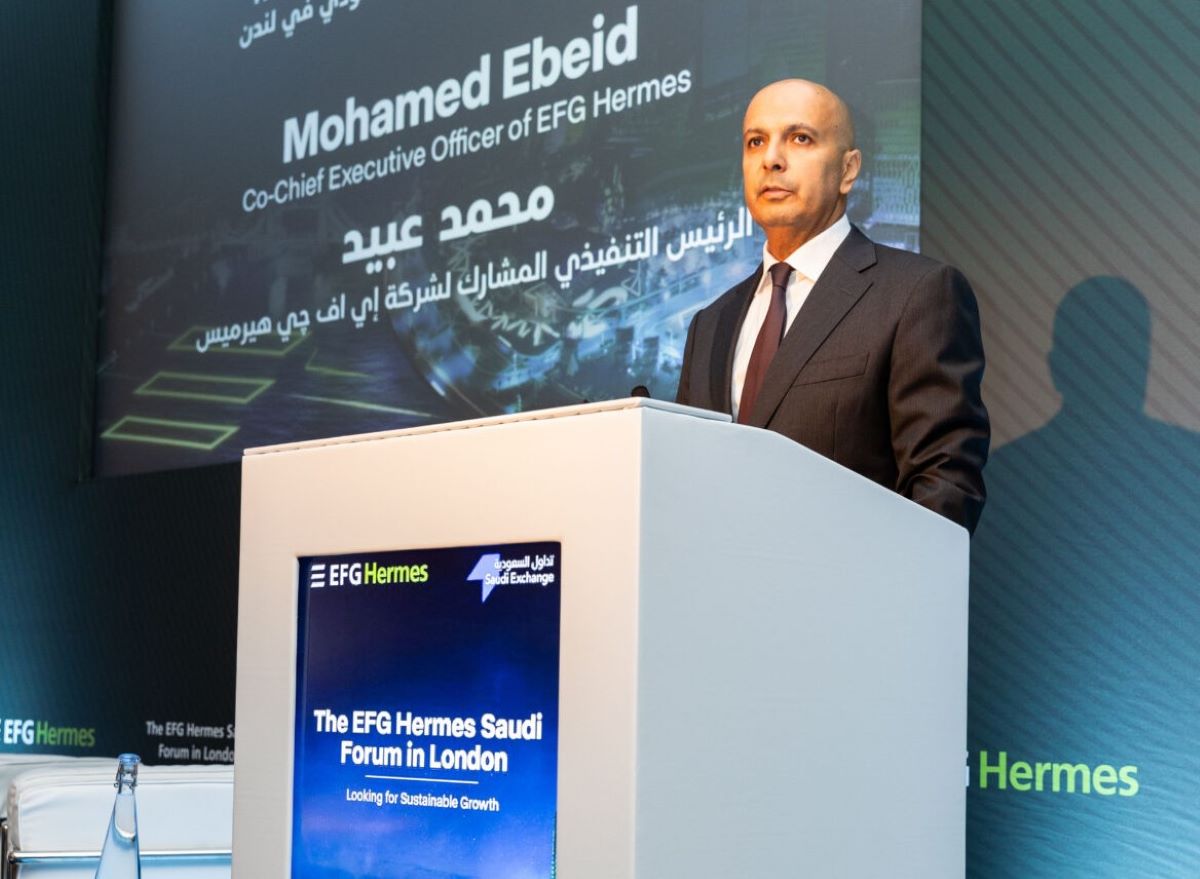EFG Hermes, a leading investment bank in Frontier and Emerging Markets (FEM), conducted its EFG Hermes Saudi Forum in London last week. The two-day event was held in collaboration with the Saudi Exchange and featured over 50 leading Saudi companies from various sectors and 375 guests from around the world. The forum was held under the theme ‘Looking for Sustainable Growth’. It was the first of EFG Hermes’ flagship London conferences since 2019 and was solely dedicated to the Kingdom of Saudi Arabia.
Economy Middle East had the chance to interview Mohamed Ebeid, Co-Chief Executive officer at EFG Hermes, where we asked the following:
How has the investment banking landscape in the MENA region changed in recent years?
I think the way it changed is that there was more focus on outbound from the Middle East in terms of deals, given they were exporting capital. What happened in recent years and in the past three to four years, between the Vision 2030 and the change in the UAE landscape in terms of attracting investments and building capital markets between countries, we’ve seen a lot of push in order to get more FDIs and attract more equity investors into the region, helping to enhance those capital markets.
Read: Interview with Saud Altassan, Chief Executive Officer at EFG Hermes KSA
What are your thoughts on the future of investment banking in the MENA region and Saudi Arabia?
I believe within the Saudi Vision 2030 and given all the developments that we’re seeing in the region, even in countries like Oman, we’ve concluded an IPO at the beginning of the year for Abraj Energy, and we’re working now on OQ Gas. Those are big IPOs relative to the size of Oman. We can see that there is a bigger push that’s happening all across the region in terms of more IPOs to be coming and more companies even on the private sector side.
We’ve seen lots of private companies coming to the Saudi market, even from the UAE. We’ve done two private sector IPOs in the last 12 months namely Talim Education, and Ansari exchange. There is a bigger push within the GCC in order to reinforce capital markets. We’re seeing this trend increasing.
What are the key trends that are driving growth in the region? How is EFG Hermes adapting to these trends?
Investment banking became more focused on inbound business, equity capital market IPOs, accelerated book builds, M&As, and consolidation. There has been more focus on the ground, and this needed more resources, from all banks across the sector.
Definitely what we’ve been doing is we’re focusing more and more on the GCC. We’re putting more boots on the ground. We’re definitely hiring more senior level representatives in different countries. We’re trying to focus on the relationships that we already have, be it with sovereigns, with the GREs, or big family offices in the region, in order to play a big role in this. This has certainly been our focus in the past few years.
What do you expect to achieve at the end of the EFG Hermes Saudi Forum and what are some key topics that have been discussed?
I believe investors here seek to identify what plans are for the kingdom in the next few years, from a capital market perspective. Most of those investors are global emerging market funds who actually are underinvesting in the region. When you look at benchmarks, the benchmark of the GCC and the MSCIEM is around 7 percent, give or take, but active fund managers are only investing 2 percent, so there is a big room for them to increase this.
Everyone is looking at the upcoming opportunities and the type of sectors and the trends from a macro perspective. I think this is a major update for most of the companies that have been arriving on the market over the past 18 months. I think the number of companies has been increasing quite a lot.
There are up to 50 companies coming to the Saudi market every year. At the same time, there an accelerated book build taking place. I think there are a lot of activities that many investors would like to understand more about.
For more interviews, click here.








